Tackling the Dog and Cat Overpopulation and Rabies Issue in Bali, BEM FKH Unud's Community Service Division Intensifies Free Sterilization and Vaccination Campaign
The overpopulation of stray dogs and cats in Bali is an ongoing issue being addressed by both the government and public health agencies. The presence of these stray animals increases the risk of rabies transmission, which is very high, resulting in dozens or even hundreds of rabies cases throughout the year in Bali. In response to this problem, the Student Executive Board (BEM) of the Faculty of Veterinary Medicine at Udayana University (FKH Unud), specifically the Community Service Division (Pengmas), initiated a free sterilization and vaccination program through Veterinary Aware and Care (Veace) for stray dogs and cats, as well as those owned by local residents in Banjar Pane, Abiansemal, Badung, on Friday, May 3rd, 2024. This time, BEM FKH Unud collaborated with the Seva Bhuana Foundation to reduce the rabies red zone and control the population of stray dogs and cats in Bali through the Veace program sponsored by Green School Bali. The Veace program is free of charge for local residents who wish to vaccinate or sterilize their dogs or cats.
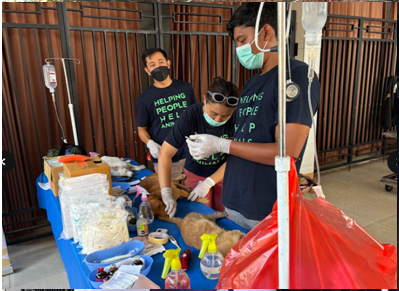
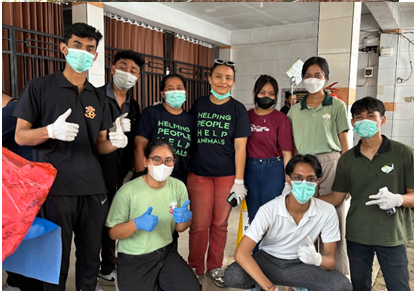
The activity began with the preparation of necessary items, such as vaccines, surgical tools, and other needs by the committee, which consists of members from the Pengmas division and volunteer students from FKH Unud. Subsequently, the committee was divided into several groups responsible for patient registration, medication distribution, medical assistance, searching and capturing stray dogs and cats, sterilizing the operation area, and documentation. The sterilization and vaccination activities were carried out in the wantilan of Banjar Pane with three experienced veterinarians from the Seva Bhuana Foundation.
The vaccination and sterilization patients from Veace partly consisted of dogs and cats owned by local residents who registered themselves, and the rest were found by the committee around the location. Nevertheless, many local residents were reluctant to register their pets for the Veace activities due to doubts about the quality of the medical services provided. Additionally, some were afraid of being charged a fee. Another challenge faced by the committee was the difficulty in finding a sufficient number of stray dogs and cats, as the area is semi-urban. The sterilization and vaccination program targeted Kintamani dogs, so several purebred dogs and cats owned by local residents who registered were unfortunately rejected from the Veace program.
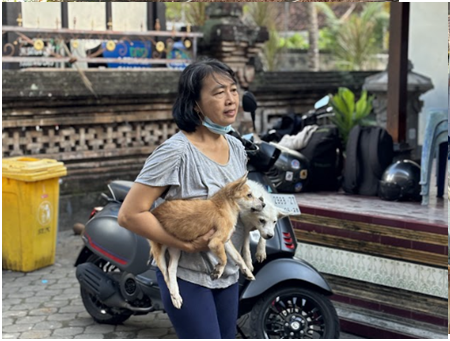
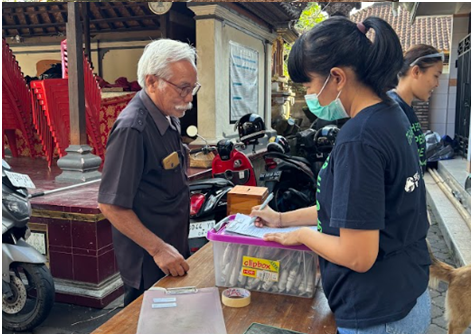
Nevertheless, Veace concluded successfully, with a total of 40 dogs and cats undergoing sterilization and vaccination procedures. The breakdown of the sterilization program included 25 patients, comprising three male dogs, fifteen female dogs, six male cats, and one female cat. The vaccination program accounted for the remaining 15 patients, consisting of twelve dogs and three cats. The success of Veace is not only evident in the number of animals served but also in the increasing awareness among the local community regarding the importance of environmental and animal health. It is hoped that similar initiatives will continue to garner widespread support, fostering a safer and healthier environment for both humans and their beloved pets in Bali.
Author : Mia LPM SS
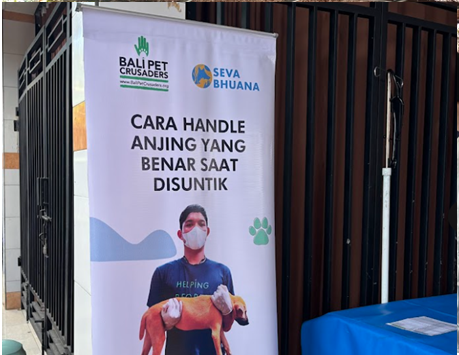

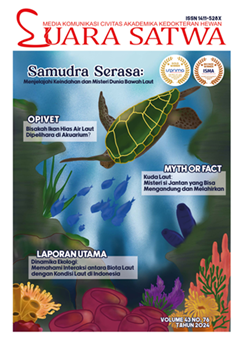
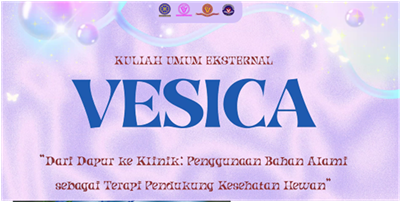
UDAYANA UNIVERSITY